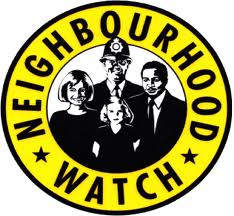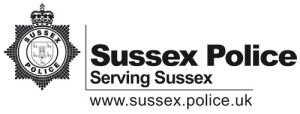 Date: 6 May 2014
Date: 6 May 2014
Press release number: PR5939
Residents across West Sussex are being urged to fight back against fraudsters as Scams Awareness Month officially launches this week with a focus on online swindles.
West Sussex County Council’s Trading Standards Service is supporting the national month long initiative and is warning people to be on their guard and look out for others who might fall victim to scammers.
New research from the Citizens Advice Bureaux has concluded that fraudsters are “picking the pockets” of up to four million people each year.
Fraud offences in England and Wales rose by 25% in 2013, compared to the previous year, with 207,252 cases reported to Action Fraud.
Moreover, Citizens Advice has calculated that up to four million people could be conned each year as many scams go unreported. West Sussex Trading Standards will look at phone scams, mail hoaxes and doorstep fraud during this month.
Lionel Barnard, West Sussex County Council Cabinet Member for Residents’ Services, which covers Trading Standards, said: “It’s so important that we raise awareness of scammers who prey on the most vulnerable members of our society, whether through the post, via the phone, over the Internet, email or a knock on the door.
“Scammers employ very clever and persuasive tactics to snare their victims so it’s vital residents are made aware and are advised who they can contact to report a scam or for help if they are a victim of a scam.”
Online shopping and auction scams was the biggest single fraud type with almost 40,000 recorded cases nationally and WSCC Trading Standards has advised that non-secure websites asking for financial details should be treated with the utmost caution.
Additional analysis has also revealed that hoaxes over the phone and via text messages are just as likely:
- Over a third of scams (34%) were over the phone.
- Almost a quarter of scams (24%) were through visits to a web site.
- 16% were letter or fax scams.
- One in ten scams (10%) were through emails.
The Council’s trading standards service this week gave the following top tips for dealing with scams:
- If it sounds too good to be true it probably is.
- Never give out your bank details or send money unless you are certain you can trust the person contacting you.
- Contacted out of the blue? Be suspicious.
- Your bank and the police will never collect your bank card, ask for your PIN or come to your home.
- Make sure the website’s secure, if you are buying online – check for the padlock or “https” next to the web address.
- It you haven’t bought a ticket you can’t win it.
- You shouldn’t have to pay anything to get a prize.
- Pressure to make a decision straight away? Take your time and just say: “No thank you”.
- Walk away from job ads that ask for money in advance.
- Computer firms do not make unsolicited phone calls to help you fix your computer.
- Don’t suffer in silence – tell others about scams.
What to do if you have been scammed:
- Report it to Action Fraud on 0300 123 2040 to help stop it happening to others.
- Often you can’t get your money back if you’ve been scammed, especially if you’ve handed over cash.
- If you’ve paid for goods or services by credit card you have more protection and if you used a debit card you may be able to ask your bank for a chargeback.
Get advice and report scams to Trading Standards through the Citizens Advice consumer service on 08454 04 05 06 or online support.
If you know someone who has sent money in response to a scam or has fallen victim to doorstep callers you can also report your concerns direct to West Sussex Trading Standards Service online.
Best Regards
John

John Wright MBE
Chair.
Sussex Neighbourhood Watch Federation.
Mobile: 07917385213
Business:01444 247368
Email:enquiries@sussexnwfed.org.uk
Web: www.sussexnwfed.org.uk
